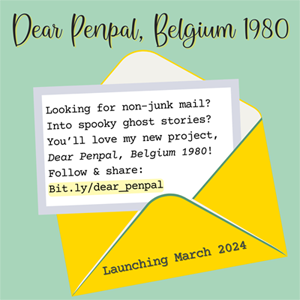 As a writer, it’s normal to want to share stories about the diverse and interesting world around you. That can be difficult if you have to write a character with a completely different background and life experience than you. The important thing is to stay away from writing a stereotype or a character that’s unbelievable. To help you, this article will share five helpful suggestions to create excellent and multi-layered LGBT characters.
As a writer, it’s normal to want to share stories about the diverse and interesting world around you. That can be difficult if you have to write a character with a completely different background and life experience than you. The important thing is to stay away from writing a stereotype or a character that’s unbelievable. To help you, this article will share five helpful suggestions to create excellent and multi-layered LGBT characters.
1. Don’t be stereotypical
In today’s world, producers and audiences alike want to see diversity in books, movies, and TV shows. But creating a stereotypical LGBT character just to fit the demand isn’t good enough. Instead, create a multi-dimensional person with a storyline… and they happen to be gay as well.
According to a writer at Academized and State of Writing, Jamie Lyndham, “a good suggestion is when you’re creating a character, ask yourself if and why they need to be heterosexual or cisgender (identifying with their birth-assigned gender). Think about if you could enhance your story by changing their gender identity or sexuality.”
2. Find a different angle
It can be easy when you’re writing about LGBT characters to develop a dramatic story line like coming out or transitioning. While these issues are important and not to be dismissed lightly, there are a lot of LGBT people in life who are living fun and interesting lives that have nothing to do with their gender or sexuality. It doesn’t always have to be about that.
Think about creating stories for your LGBT characters that are positive, engaging, and not what your audience is expecting. Find a new angle for your story and make your story stand out from others.
3. Research your characters
If you’re not a member of the LGBT community but you want one of your storylines or characters to be specific to this community, you need to do your research. If your storyline concerns a time period before homosexuality was legalized, talk to someone who was around at that time.
This is the best way to make your story, language, and character’s experience ring true for your audience. If you have LGBT friends and colleagues, you might want to talk your ideas through with them to make sure your character is as authentic as any heterosexual character you write.
4. LGBT characters can be in all genres
LGBT people have been around since the beginning of humanity, so you don’t need to only include LGBT characters in modern stories. If you’re writing a period novel, why don’t you consider including an LGBT character, as there are so many great story lines about life before decriminalisation.
Some ideas from Sam Deele, a blogger at Paper Fellows and Australian Help, are for writers to “also write about children with gay parents, or a child that is learning about being transgender. LGBT stories don’t just start when the character become an adult at 18. You can also consider how including an LGBT character could have a positive impact on your audience.”
5. The term trans includes many people
If you’re writing about a trans character, you have to be aware that trans is an umbrella term for many different people, not only someone who was born male but identifies as female and vice versa. Trans actually includes many different people, including those who don’t identify as any given gender, or who are a mix of both, and anything in between.
Don’t fall into any stereotypes here, because writing about trans characters gives you so many new opportunities for different and engaging stories. Like in the first point, think about whether your character needs to be male or female and whether your story could benefit if the character didn’t identify as cisgender.
It’s never too late to ask for feedback, even if you’ve finished the LGBT character or storyline and you want to make sure it’s right. It’s immensely better to make corrections at this stage than to submit it and realize it’s not right afterwards. If you don’t know any LGBT people that can read it for you, look into online groups that promote diversity like Bang2writers who would be happy to help.
 About the Author: Ellie Coverdale, a writer and blogger at Essay roo and UK Writings, loves sharing her writing tips and suggestions with her audience. She writes about many topics including education, life as a writer, and lifestyle tips. She also works as a teacher for Boom Essays in her free time.
About the Author: Ellie Coverdale, a writer and blogger at Essay roo and UK Writings, loves sharing her writing tips and suggestions with her audience. She writes about many topics including education, life as a writer, and lifestyle tips. She also works as a teacher for Boom Essays in her free time.
If you’re an author or other fantasy and science fiction creative, and want to do a guest blog post, please check out the guest blog post guidelines. Or if you’re looking for community from other F&SF writers, sign up for the Rambo Academy for Wayward Writers Critclub!
#sfwapro








